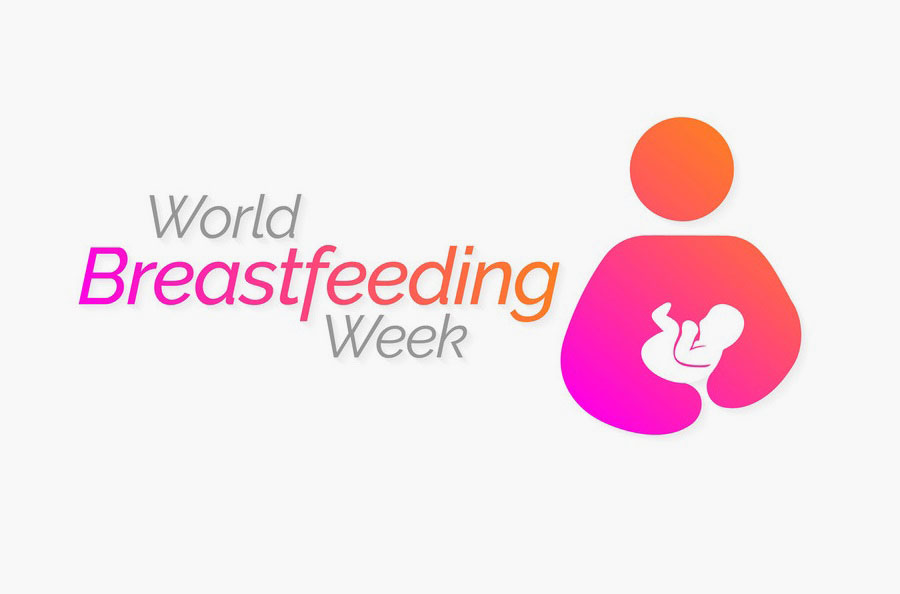Aug 5, 2021 by Goli Dargahi
The 7 days between 1st to 7th of August will be observed as the World Breastfeeding Week. It is organized by the WHO every year and governments, NGOs, and individuals across the world participate in it. The goal is to increase awareness about the importance of breastfeeding for both mother and child.
Breast milk is the natural, unequalled high balance of carbohydrate, proteins, fats, vitamins and minerals that is easier to digest and absorb by the baby. Everyone knows that breast feeding is a precious God’s gift to mother but it’s always a big challenge for a first-time mother to understand how to feed, how much to feed, and when to feed, in order to to give best to her baby.
Newer generation mothers always face difficulties in balancing between old myths and modern lifestyle. So, breast feeding week is the best way to discuss this.
Nutritional supply for your baby
Mother’s milk contains just the right mix of nutrition that an infant and growing baby need for the healthy development of mind and body. The composition of human milk changes with the changing needs of the body. For example, right after birth the milk produced by the mammary glands called colostrums contains truly little sugar and lactose and is rich in protein, growth hormones and immunity builders suitable for the requirements of a small infant’s weak digestive system and unformed immunity.
Human milk contains the following nutrition (the ratio might change as the baby grows):
- Colostrum: breast milk produced after delivery is the perfect first food for your baby as it is like receiving first vaccination because colostrum is filled with antibodies and immunoglobulin A (IgA). Colostrum is also rich in protective white cells called leukocytes, which defend against microbes. Thus, breast milk boosts immunity. The chances of infections such as diarrhea and cholera are higher in bottle-feed babies as compared to breastfeed ones. Breast milk also ensures lesser chances of diabetes in children by as much as 35%, and reduces risk of childhood cancers and heart disease later in life.
- Lactoferrin, which prevents the growth of organisms that would drain the baby’s blood iron.
- Secretary IgA that protects the baby from allergens.
- Lysozyme that helps build balanced gut microbiome, which is crucial for immunity and metabolism.
- Bifidus factor sustains lactobacillus, a type of beneficial bacteria that can destroy bad bacteria.
- Fat, which is important for the brain and nervous system development of the baby.
- Vitamins like riboflavin, thiamine, pantothenic acid, niacin helps in overall development, strengthening bones and teeth, creating energy, muscle growth, the transmission of neural signals etc. Mothers should consume plenty of vitamins or their milk will be deficient in them.
- Carbohydrates also boost beneficial bacteria growth in the stomach and help in absorption of magnesium, phosphorus, and calcium.
- Vital minerals such as iron, calcium, sodium, zinc, magnesium, and selenium trigger hormone production, create bone and teeth cells, maintain heart rhythm and fluid balance, contract and relax muscles, transport oxygen, produce genetic material etc.
Protection from illnesses
When a baby is fed by mother’s milk, the foundation for a strong immunity that will last a lifetime is laid. Human milk provides the baby with antibodies; this is especially true in the case of colostrum. Since the mother has been exposed to viruses and bacteria during her lifetime, her immunity has produced antibodies and these seep into her milk and go into her child during breastfeeding. These antibodies create a defense wall at the baby’s throat, nose, and digestive tract. Mother’s milk will reduce the likelihood of common cold and flu, middle ear infection, digestive diseases, respiratory tract illnesses, allergies, celiac disease, diabetes, and inflammatory bowel disease.
Breastfeeding also contributes to the health of mothers. It helps space children, reduce the risk of ovarian cancer, breast cancer by as much as 25%. Breastfeeding women recover faster and easier from childbirth as hormone such as Oxytocin help the uterus to return to normalcy quicker and reduces Postpartum bleeding. The benefits also extend to effortlessly losing weight during pregnancy.
Proper weight gain
Obesity is a killer and breastfed babies are less likely to become obese later than formula-fed babies. Human milk ensures that babies have leptin in their bodies. This hormone is an appetite regulator.
While breastfeeding is a natural act, but it is also a learned behavior. Motivation and the right way of feeding a baby to give support to a mother for establishing and sustaining best breast-feeding practices is important.
